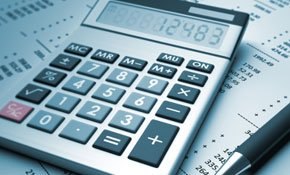YouGov President, Peter Kellner, discusses how people are less angry at illegal practices by individuals than legal avoidance by companies
There always have been, and always will be, liars, cheats and crooks – and accountants who hunt for fancy tax loopholes on behalf of greedy clients. We have never liked any of them; but when times were good, the economy was motoring and government had money to spend, we worried more about other things. Today, when money is tight, the mood is different. Tax-dodging and welfare-fiddling are not only morally offensive; they also starve the Government of revenue it badly needs. The cost to the rest of us, in higher taxes or lower public spending, is more keenly felt.
But which affront us more: the moral turpitude or the lost cash – the welfare cheats who lie in order to claim extra benefits, or the millionaires who tell no lies and use legal, but artificial, means to minimise their tax bill?
YouGov’s latest poll for Prospect suggests that, when push comes to shove, rich tax avoiders – companies as well as individuals – offend us most. They should be the top target for Government action. However, just to make life that bit more difficult for ministers juggling with their priorities, Conservative voters do not see things in quite the same way as everybody else.
First, we list six frequently-discussed ways in which different people try to keep, or get, more cash for themselves. Not surprisingly, the one that attracts the greatest opprobrium is rich individuals engaging in tax evasion – lying about their income in order to keep their tax bill down. Eighty-eight per cent say this is “never” or “rarely” acceptable (although 8% of the public – that’s more than three million people – say it can sometimes, or usually, acceptable).
The proportion that condemns rich people who don’t lie but use legal, if artificial, forms of tax avoidance is lower, but still overwhelming: 73%.
Between the two are the big majorities who think it is never, or rarely, acceptable for those NOT living in poverty to claim extra welfare benefits by cheating (82%) and those who is appalled by companies that keep down their tax bill by using internal accounting devices to shift profits from Britain to other, low-tax countries.
A smaller number, but still a clear majority (64%) condemn parents with children who lie to claim extra benefits to make ends meet, but a substantial minority, 30%, say this can sometimes be acceptable. The only one of the six activities that divides Britain down the middle is individuals such as plumbers, decorators and electricians who charge “people like you less if you pay cash, when you are sure that they will not pay income tax and/or VAT on what you pay them”. As many as 44% say this can be acceptable, while 48% say it is always or almost always wrong.
So, overall, there is widespread condemnation of cheating and avoidance of all kinds, with the partial exception of cash-in-hand small traders. However, when we move from asking separately about the six activities to a comparative question – “which two are the MOST unacceptable” – a sharper picture emerges. The top three public hates are the activities of rich people and companies, even if they operate within the law. It seems that public priorities are driven more by the lost cash than outright dishonesty. Welfare cheats score much lower, and here there as more of a cash/morality trade-off, with more people (26%) saying one of their top hatreds is individuals who are NOT poor lying to boost their income by £40 a week – and far fewer, 11%, condemning parents of children living in poverty lying to claim twice as much, £80 a week.
It’s clear that these rankings are driven by a widespread perception that legal tax avoidance by companies and rich individuals costs the Government more than illegal tax evaders and welfare cheats. They are probably right. Her Majesties Customs and Excise try to estimate the money lost each year through avoidance and evasion. Theirs can only be a best-guess, of course: by definition, much of the lost cash goes to people and activities they have not tracked down; but they think tax avoidance currently costs them around £5 billion a year, while fraudulent welfare claims cost £1.2 billion and cash-in-hand moonlighting £1.9 billion a year. And some of that fraudulently-claimed £3.1 billion goes to well-off crooks, dishonest landlords and sophisticated scams: the total amount going to “ordinary” small traders and welfare cheats is probably much less.
However, Conservative voters have a different take from Labour and Lib Dem supporters. By 55-40%, Tories think the Government’s priority should be to clamp down on tax evaders and welfare cheats, rather than the legal tax avoidance activities of big corporations and rich individuals. By large margins, those who support Labour (by 72-20%) or the Lib Dems (by 63-31%) hold the opposite view.
Finally, we asked people if they had dodged the tax or welfare system themselves. As YouGov conducts its surveys online, people tend to be more honest about sensitive questions than in telephone or face-to-face polls, which require admission to a stranger of questionable behaviour. However, common sense suggests that our figures are still underestimates of the true position. Nevertheless, it’s notable that 18% of our respondents admit to having paid small traders in cash to help them evade tax and/or VAT – that’s equivalent to eight million adults. And five per cent, or two million, admit to cheating in order to pay less tax or claim extra welfare benefits.










